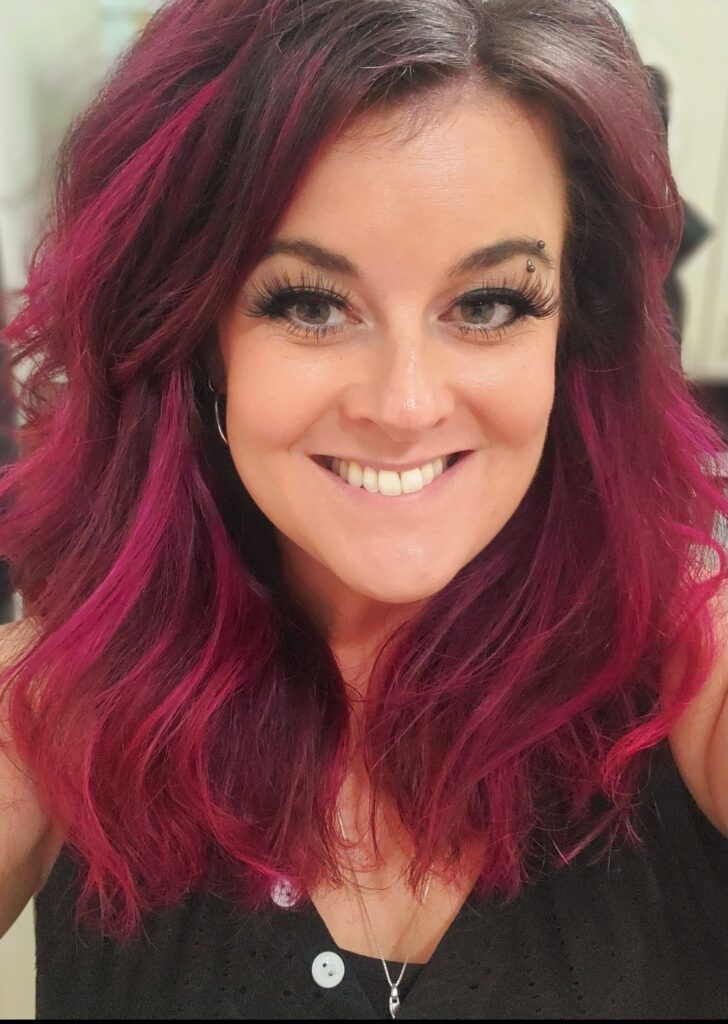Meet the Board - Audrey Dodgson

As we work to provide equal communication access, education and advocacy to the Deaf, DeafBlind, and Hard of Hearing in pursuit of all life’s opportunities, we are grateful to a wide range of partners, including our Board of Directors. We want to share more about them with you. In this installment, we spend a little time with board member Audrey Dodgson.
After serving children and families in West Michigan for nine years as a foster care social worker, Audrey recently transitioned to Gift of Life Michigan where she is a Donation Support Specialist, helps assess potential organ and tissue donors and walks alongside families through the early stages of that process. She said: “I love being able to offer something hopeful to people in the midst of their tragedies and have met some amazing humans along this journey.” She also is involved in her church, enjoys volunteering and recently learned how to play pickleball.
Learn more about Audrey and her involvement on the D&HHS board below!
How did you first get connected to D&HHS?
While working as a foster care social worker, I was assigned a case that involved a Deaf tween who not only could not hear but also could not communicate by speaking, signing, or reading and writing. I quickly learned that the child welfare system did not have an established plan to meet the needs of this child and that the system overall was so lacking in knowledge about Deaf, DeafBlind, and Hard of Hearing communities and individuals that nobody within the system could even offer suggestions as to where I might turn for guidance in helping this young person. I studied American Sign Language in high school (thank you, Northview!) and a little bit in college which provided me with a very basic knowledge of the language and Deaf culture. After asking for assistance from everybody I have ever known, eventually, I was told that there was an agency in the greater Grand Rapids area called Deaf and Hard of Hearing Services who may be able to provide some help or point me in the right direction. During that first meeting, the weight of the world was lifted from my shoulders and shared among people who understood the problem and the challenges we would face as a team in solving them.
What’s one thing you love about being a D&HHS board member?
I love the success stories. From victories on a legislative level to helping families overcome communication challenges, I love the way this agency makes the world a better place. I cannot speak highly enough about the staff and the dedication they have to the mission of this agency. They work exhaustively to advocate for this community with very little outside support. Day in and day out the employees at Deaf and Hard of Hearing Services fight against the challenges that threaten to crush all non-profits, and I find myself encouraged and inspired by their dedication to this community.
What would be lost if D&HHS didn’t exist?
For many, the list of losses would be too numerous to detail. Their “one-stop shop” model for serving the Deaf, DeafBlind, and Hard of Hearing communities is more than just convenient, it’s one of a kind. D&HHS isn’t one of many agencies providing services in this area. They are the only agency in many regards. From ASL classes to interpreter services, social events to structured workshops, resources to supportive advocacy, D&HHS truly stands beside those they serve and ensures that the needs of the individual as well as the greater community are not forgotten or ignored.
What’s one thing you wish people knew about D&HHS?
I wish more people supported and appreciated D&HHS for who they are and what they do. As a society, we need to put more value into agencies and organizations that serve others, whether we feel that this directly benefits us or not. In the case of D&HHS, this is especially important as the likelihood of needing D&HHS’s services for us or someone we love is only growing (approximately 14% of adults in the United States have hearing loss and it is estimated that this number will rise above 22% by 2060).
